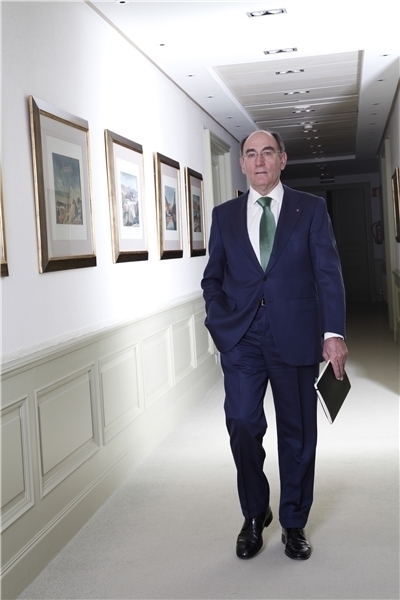News
-
27/05/2019i-DE, Iberdrola's new electricity distribution brand Madrid. Iberdrola launches the new brand for its electricity distribution activity in Spain to continue leading the new cleaner, more efficient and more sustainable energy model. The new brand will be ‘i-DE, Smart Electricity Networks’ replacing Iberdrola Distribución Eléctrica. i-DE , which has more than 11 million connection points, focuses on three areas: service improvement (quality of supply and improved customer service), caring for the environment (protecting fauna and biodiversity) and the energy transition, facilitating the integration of more renewables, as well as sustainable mobility, smart cities and decentralised consumption by using smart networks. “The transformation of the networks into a smart infrastructure that is safer and more reliable is putting consumers at the centre of our activity, giving them greater capacity for decision-making and connectivity”, explained Antonio Espinosa de los Monteros, CEO of i-DE. “Networks are the circulatory system of the energy model and the platform necessary for the transition toward a decarbonised economy based on renewable energies. Leading this transition and making it a reality requires a tariff framework that fosters quality and efficiency, incentivises digitalisation and promotes innovation”. Investments of €2 billion in service quality, digitalisation and connection of supplies and renewables Iberdrola’s activity in distribution networks includes the planning, construction and maintenance of power lines, substations, transformer stations and other infrastructures, as well as operating the system in a way that efficiently distributes energy among the agents that produce and consume it. i-DE operates a distribution system consisting of 270,000 km of power lines in Spain present in 10 autonomous communities and 25 provinces, serving a population of 17 million. In 2018, the company recorded the best supply quality in its history, a 37% improvement on the previous year. I-DE’s network is one of the most digitalised, most efficient and with the best service quality in Europe* and has more distributed generation plants connected to its networks (more than 41,000) than any other distribution company in Spain. In 2018, Iberdrola’s distribution business invested almost €500 million in Spain and plans to allocate almost €2 billion in the period 2018-2022 to improving service quality, creating new supply connections and renewable generation, and digitalising the network. Some of the most high-profile projects in 2018 were (1) improving its customer service processes and channels, especially digital; (2) finalising the deployment of almost 11 million smart meters, which incorporate remote management capabilities; and (3) monitoring and automation of the network, which now has 135,000 monitoring and remote operation elements. A driver of the economy: jobs and purchases from suppliers i-DE is also a significant driver of the Spanish economy, generating more than 10,000 jobs (both direct and through its suppliers). In 2018, the company made purchases totalling €500 million from 2,000 local companies. *Report ‘Retribución comparada de la distribución eléctrica en Europa’. KPMG, April 2018 READ MORE
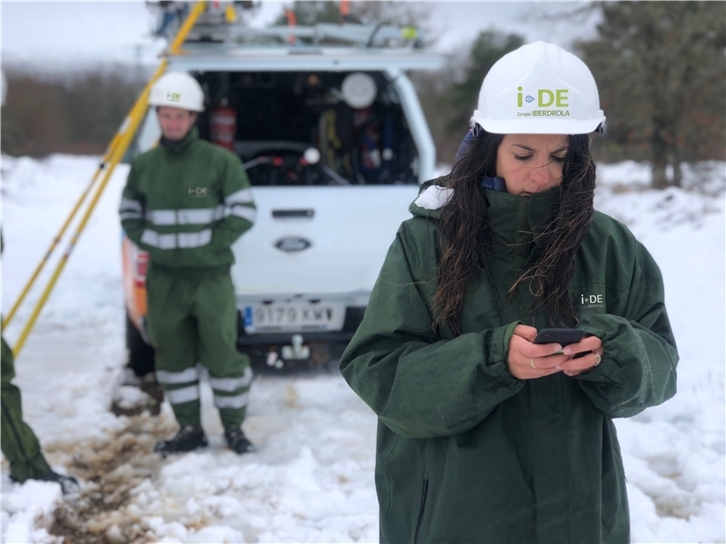
-
23/05/2019Iberdrola inaugurates the Baixo Iguaçu hydroelectric power plant, which will supply clean energy to a million Brazilians Capanema, Paraná State (Brazil). Iberdrola, through its Brazilian affiliate Neoenergia, officially opened the Baixo Iguaçu hydroelectric power plant , a 350-MW facility with an investment of more than €500 million. The plant will supply sustainable energy to a million Brazilians and its production is equivalent to nearly 8% of the annual electricity demand of the State of Paraná, where the project is located. During the event, Galán stressed that "we are proud to contribute to the economic and social development of the country" and announced that Iberdrola's commitment will continue to increase. "Over the next five years alone, we are going to invest around €6.5 billion in new projects in Brazil to continue improving country's electricity supply and, thus, its competitiveness." He also highlighted the social and environmental importance of the Baixo Iguaçu project: "This facility is of benefit to the Iguaçu Falls, as it contributes to maintain the minimum water flows required. In addition, many initiatives have been undertaken in the areas of health, education, infrastructure, public safety and biodiversity in order to preserve and enhance the well-being of the region." This new renewable energy infrastructure has been built maintaining the highest standards of quality and respect for the environment, as in the rest of the facilities that the company has. The impact associated to the construction of a power plant of this nature has been minimized as much as possible. Practically, the water channel has not been modified, given that of the 31 km2 of the plant's reservoir more than 20 km2 belong to the river itself. Also, thanks to the use of three Kaplan turbines, one of the most efficient on the market, the necessary flooding area is significantly smaller than that of other hydroelectric plants of similar size. This hydroelectric plant is yet another example of Iberdrola's commitment to reducing emissions. As it is a clean and efficient technology, it enables the electrification of the economy while promoting the necessary transformation of the energy sector towards a more sustainable one. Baixo Iguaçu controls the water flow of the Iguaçu Falls Another important aspect of this power plant is that it will have a decisive impact on the flow of water through the Iguaçu Falls, one of the seven natural wonders of the world, which receives 1.5 million visitors every year. The waterfalls, whose flow is seriously affected during periods of drought, were diminished to mere trickles in 2006. A report by the National Electric System Operator (ONS) concluded that, thanks to the contribution of this hydroelectric power plant, the famous falls will always have the minimum necessary water flow. But Baixo Iguaçu is making an even greater contribution to the environment through the Consorcio Empresarial Baixo Iguaçu (CEBI), which has carried out several environmental programmes to monitor, rescue and conserve local species living around the plant. A green corridor for animals has also been built. Furthermore, in collaboration with the CEBI, agreements have been reached with local municipalities to support health, education, infrastructure and public security programmes. Among the initiatives already completed are the extension of a local school and the building of a new military police station. While work was underway to obtain the plant’s environmental permit, archaeological findings dating back to almost 6,000 BC were uncovered, most notably a series of cave paintings (150 engravings) hitherto unseen in the area. There are plans to open the site, named the Vista Alta Archaeological Site, to the public, making it one of the few sites that can be visited in the region. An energy leader in Brazil Through Neoenergia, Iberdrola has become one of the top two electricity companies in Brazil by number of customers, with 13.8 million supply points. Trading in 18 states, it produces, transports, distributes and retails electricity in an area spanning 840,000-km2. The company now has a generation capacity of over 3,700 MW in this country, 86% of which being renewable, from onshore wind farms to hydroelectric power plants. If projects under construction are added in, the capacity reaches nearly 5,000 MW. It also has almost 700,000 kilometres of electric lines operated by the four distribution companies integrated in Neoenergia, namely Cosern, Celpe, Coelba and Elektro. The commissioning of the Baixo Iguaçu power plant is evidence of Iberdrola’s commitment to hydropower since its foundation more than 170 years ago. It produces 100% renewable energy with zero emissions. Its historic investment in this technology has given it a leading position in pumped hydro, the most energy efficient storage method in existence, with an installed capacity of 4,400 MW and several projects under construction. Iberdrola operates the largest pumped storage hydro scheme in Europe, Cortes-La Muela (Valencia) on the river Júcar, with almost 1,400 MW. The company is also working on the ambitious Tâmega project in northern Portugal, a complex that will have more than 1,100 MW of installed power, 890 of which will be pumped. Together, these facilities will convert the Iberian Peninsula into Europe’s battery. READ MORE
-
23/05/2019Iberdrola to install super-fast car charging at Ballenoil service stations Madrid. Iberdrola is making strides with its plan to install super-fast charging facilities at service stations to help encourage sustainable mobility on Spain’s main motorways and highways. That’s why the company has come to an agreement with Ballenoil to install super-fast vehicle charging facilities in the country’s most extensive independent service station network, with more than 110 stations in Spain. The charging stations will have 150kW (super fast) of power to charge vehicles at service stations in nine Spanish provinces: Madrid, Barcelona, Alicante, Toledo, Valencia, Cádiz, Sevilla, Valladolid and Asturias. A total of 20 locations are specified in the agreement, which will be given priority and installed in 2019, before expanding the initiative to the entire network. Ballenoil customers will be able to charge their vehicles in 20 to 30 minutes, using zero-emissions electricity generated with renewable sources, all with guarantee of origin certification. Whether or not you are an Iberdrola customer, charging an electric vehicle at these stations will be quick and easy. Download the Iberdrola Public Charging app on your phone and you will be able to geolocate the charging facilities, reserve and pay for charges. “This is an ambitious agreement that will allow us to make progress with an optimal ally that is committed to sustainable mobility as a way of addressing climate change, innovating in the services it offers its customers”, explains Luis Bull, head of Smart Mobility at Iberdrola. By installing these charging points, Iberdrola is helping Ballenoil to improve its services stations, with better connectivity, personal service and fuel at the best prices. “Iberdrola is the perfect partner for travelling the road to technology and innovation”, explained David Querejeta, partner and director of expansion at Ballenoil. “We want to lead the sector, which is why we need to associate with the best allies to adapt to changing trends and the behaviour of society”, explained Juan Sanz, partner and operations manager at Ballenoil. Leading sustainable mobility The agreement is part of Iberdrola’s plans to promote and lead the transition to sustainable mobility and the electrification of transport as an effective way to fight climate change. Iberdrola has a Sustainable Mobility Plan, which entails rolling out 25,000 electric vehicle charging stations in Spain by 2021 in homes, companies, urban and suburban areas with public access, The plan includes installing fast, super-fast and ultra-fast charging stations at least every 100 km on the country’s main motorways and highways during 2019, reaching all provincial capitals and making it possible to drive all the way across Spain in an electric vehicle. Iberdrola is working on several initiatives to mobilise all agents involved in sustainable mobility, from governments to institutions, companies and electric vehicle manufacturers. Innovation to meet user demand The agreement will enable Ballenoil to keep investing in avant-garde technology to offer optimal, high-quality to its users. This arrangement is part of the company’s plan to adapt and improve its service stations to satisfy new demands. READ MORE
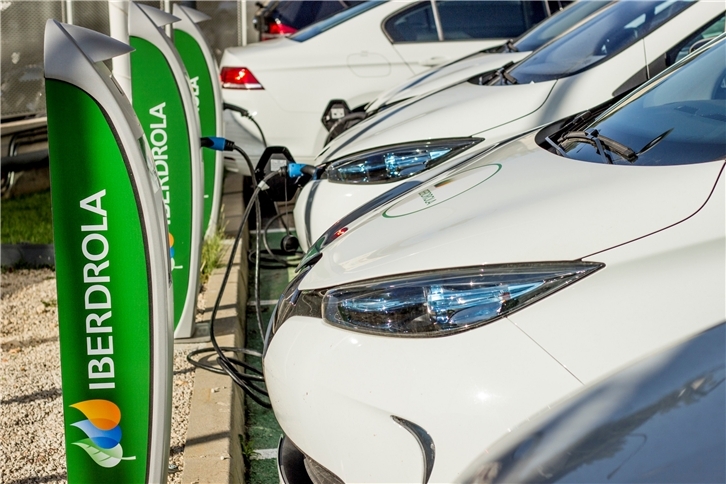
-
20/05/2019Iberdrola is launching the call for funding applications to its 2020 Social Program to support vulnerable groups Iberdrola, through its Foundation in Spain has launched the call for applications to its 2020 Social Program, which aims to promote the comprehensive development of the most vulnerable groups in the territories in which the company operates, with special attention on children, adolescents and women. A committee of experts from the Iberdrola Spain Foundation selects around 30 social projects that have to be aligned with specific objectives of the Sustainable Development Goals of the United Nations agenda 2030, as part of its business strategy. Specifically, these goals are: * Goal no. 1 (no poverty). In this area, support will be given to projects aimed at overcoming situations of poverty and social exclusion, providing access to basic needs, promoting educational support and the enjoyment of leisure and free time, as well as backing training for access to employment. * Goal number 10 (reduced inequalities), goal number 4 (quality education) and goal number 5 (gender equality). With these goals, initiatives are put in place to help disabled people live independently. Mainly by supporting occupational centres to encourage comprehensive training processes. This enables specialised training in social skills and learning required for inclusion in the regular employment market. * Goal no. 3 (good health and well-being) This will involve working on improving the quality of life of people suffering from serious diseases by meeting their daily needs and providing family support. Special attention is paid to people suffering from addiction and to providing children with leisure opportunities. This call, with a budget of more than one million euros and to be decided in October, is open to private non-profit institutions based in Spain, declared to be for the public benefit, pursuing aims that are of social interest and carrying out their activities in Spain. Special consideration will be given to organisations that publish relevant information consistent with the principles of transparency, good governance and Iberdrola’s code of ethics. Applicants must submit their proposals by 17 June using the form available from the foundation website (www.fundacioniberdrolaespana.org ), where they can also consult the terms and conditions of the call for applications. Iberdrola, committed to society Iberdrola, through its Social Program, has already allocated over 9 million euros to social initiatives in Spain, benefiting a total of 335,000 people. Since this plan was launched in 2010, the company has been behind over 350 projects that have contributed to social inclusion, especially that of children, young people and women in vulnerable situations. These actions have also led to the creation of 1,000 jobs and involved 2,250 volunteers. The Iberdrola Foundation also focuses its activities on training and research in the field of energy, through scholarship programmes; in biodiversity, with projects protecting the environment; and in cultural development, by caring for and maintaining cultural and artistic treasures. READ MORE
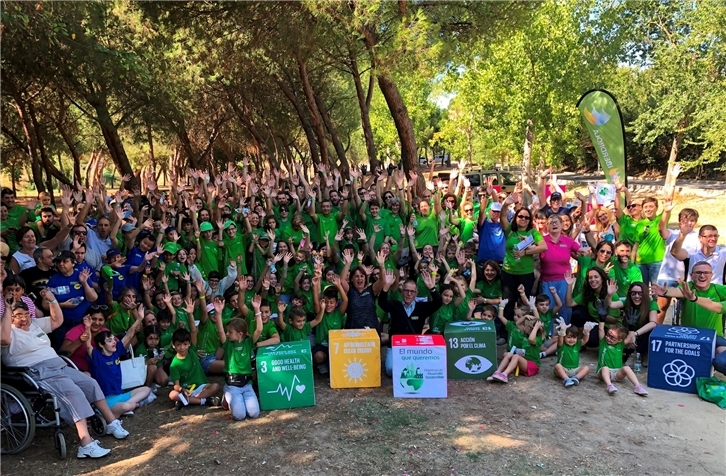
-
16/05/2019Iberdrola impulsa la primera Selección Sostenible Iberdrola quiere contagiar su apuesta por la sostenibilidad a todos los ámbitos en los que opera y ha decidido contribuir a que la Selección Española de Fútbol Femenino se convierta en la primera Selección Sostenible. La iniciativa ha sido presentada, junto a las integrantes de la Selección Española de Fútbol Femenino, en el parque eólico de Maranchón -uno de los mayores de Europa-, que Iberdrola opera en la provincia de Guadalajara. “La universalidad y su implicación en la sociedad hacen del deporte una vía óptima para trabajar por la igualdad de oportunidades y fomentar una vida saludable. Pero ahora queremos ir a más, ampliando nuestra capacidad de acción y sensibilización hacia la sostenibilidad, un ámbito clave y crítico en nuestra apuesta por el desarrollo de energías limpias, competitivas y sostenibles”, explica Juan Luis Aguirrezabal, director Global de Marca y Publicidad de Iberdrola. En este contexto, Iberdrola se compromete a impulsar diferentes iniciativas, entre las que se encuentran: * Fomentar la movilidad sostenible en el deporte, alineada con la apuesta de la compañía por la electrificación del transporte y el uso del vehículo eléctrico, como vía para reducir las emisiones de CO2 y luchar contra el cambio climático; * Compensar la huella de carbono generada por la Selección Española de Fútbol Femenino con energía verde; * Suministrar energía verde o implantar soluciones de energía renovable en los espacios deportivos, con el objetivo de promover instalaciones más sostenibles en materia energética; * Promover alianzas con los diferentes agentes implicados en el deporte para conseguir el objetivo de la sostenibilidad en otras instituciones. Iberdrola desarrollará un programa de sensibilización en sostenibilidad entre las jugadoras de la Selección Española de Fútbol Femenino, en el que compartirá información, valores y principios en esta materia para convertir a las jugadoras en las principales embajadoras de la sostenibilidad en el deporte. Energía limpia a cerca de 600.000 habitantes El complejo eólico de Iberdrola en Maranchón (Guadalajara) es uno de los mayores de Europa: en operación desde 2006, está integrado por siete parques con un total de 104 aerogeneradores, que dotan al complejo de una potencia conjunta de 208 megavatios (MW). La producción del complejo eólico permite abastecer de energía limpia al consumo anual equivalente de una población de 590.000 habitantes. El parque evita la emisión a la atmósfera de 430.000 toneladas anuales de CO2 y el consumo de 100.000 toneladas de petróleo al año. Su efecto ‘depurador’ es el equivalente a la función que realizarían 38 millones de árboles. Maranchón contribuye a la actividad socio-económica de la región, empleando a 40 profesionales, principalmente, en labores de operación y mantenimiento La operación del parque se monitoriza desde el Centro de Operación de Renovables (CORE) de Iberdrola en Toledo, la instalación más avanzada del mundo en el ámbito de las energías renovables, desde la que se controla y gestiona en tiempo real el funcionamiento de las instalaciones renovables de la compañía en todos los países donde opera. Iberdrola, con el deporte femenino La apuesta de Iberdrola por el deporte practicado por mujeres se enmarca dentro de su compromiso con la igualdad de oportunidades y la promoción y empoderamiento de las mujeres, principios contemplados en los Objetivos de Desarrollo Sostenible de la ONU (ODS), que la compañía ha integrado en su estrategia empresarial. Iberdrola es el principal impulsor del deporte femenino en España y fue el primero en hacerlo de forma global. La compañía apoya a 16 federaciones (gimnasia, triatlón, rugby, piragüismo, bádminton, fútbol, balonmano, voleibol, hockey, tenis de mesa, atletismo, kárate, boxeo, surf, deportes de hielo y esgrima) y da nombre a 23 ligas nacionales de diferentes disciplinas, apoyando a más de 22.000 deportistas en España. READ MORE
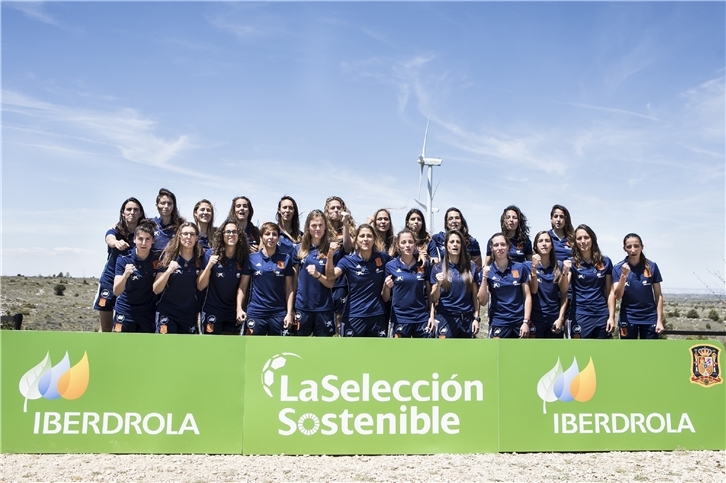
-
13/05/2019Iberdrola begins construction on the El Pradillo wind farm in Zaragoza Iberdrola has begun construction on the El Pradillo wind complex in Zaragoza, with an installed capacity of 23 megawatts (MW). The project, developed in conjunction with Caja Rural de Navarra, represents an investment of 26 million euros and is expected to enter into service at the end of this year. Located between the municipalities of Frescano, Borja and Agón in Zaragoza province, the wind farm comprises six 3.4-MW Siemens Gamesa G132 wind turbines and one 2.1-MW SG114 turbine. The production generated by El Pradillo will provide clean energy to the equivalent of 10,500 homes/year and prevent the emission of 17,300 tonnes of CO2 a year. More investment to lead the energy transition in Spain With El Pradillo, Iberdrola is strengthening its commitment to renewables in Aragon, where it operates more than 320 MW of wind and hydroelectric electricity production. Iberdrola is the biggest producer of wind energy in Spain, with installed power of 5,770 megawatts, while its total installed renewable capacity, including both wind and hydroelectric, is 15,790 MW. Iberdrola’s commitment is to lead the transition toward a fully decarbonised economy by promoting renewable energies and accelerating investment in Spain, where it intends to spend 8 billion euros between 2018 and 2022. Iberdrola is currently building new renewable projects (solar and wind) with a capacity of 700 megawatts (MW) and it has 2,500 MW under development and a portfolio in excess of 7,000 MW. It intends to implement 3,000 renewable MW in the country by 2022, a 52% increase on its current wind and solar capacity. Globally, Iberdrola's installed renewable capacity is over 29,000 MW, which makes its generation fleet one of the cleanest in the energy sector. READ MORE
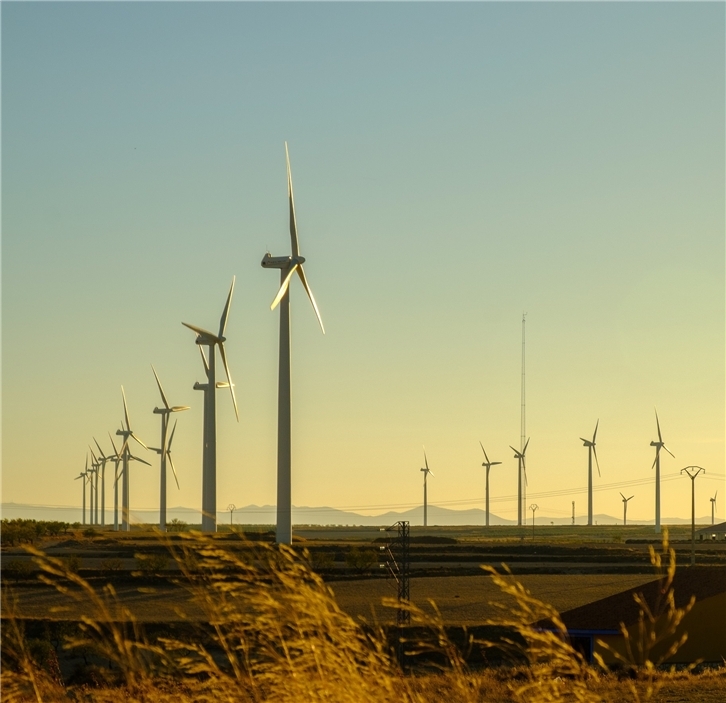
-
25/04/2019Iberdrola’s first quarter net profit increased by 15% to €964 million Iberdrola obtained a net profit of €963.9 million in the first quarter of 2019, 15% more than in the same period of the previous year, as a result of the more than €5.3 billion invested by the group in the last twelve months. Growth in all businesses and the improvement in cost/income ratio achieved in all countries, especially in Brazil, also allowed the company to increase its gross operating profit (EBITDA) by 11.9% to €2.599 billion. Iberdrola chairman Ignacio Galán said: “these results, together with the progress on our various growth initiatives, reaffirm our positive outlook for the full year 2019.” The company’s revenues increased by 8.5% to March, reaching €10.138 billion, and the gross margin improved by 7.8% to reach €4.323 billion for the quarter. By businesses, Networks posted EBITDA of €1.318 billion, up by 9.9%, with growth in all countries, especially Brazil and the United States. The Renewables business posted operating profit of €683.6 million, up by 13.3%. This business was driven by the increased contribution from renewables in the UK and Latin America, as well as from offshore wind power thanks to the contribution from the Wikinger windfarm, in the German section of the Baltic Sea. Generation & Retail posted EBITDA of €600.5 million between January and March, up by 19.2%, thanks to the positive trends in Spain and Mexico. The group’s cash generation increased by 8.5% in the first quarter, reaching €2.036 billion. In divestments, an agreement was reached with Lyntia Networks on 6 March 2019 on the assignment of the long-term rights of use for the excess capacity of the Spanish optical fibre network. The total consideration amounts to €260 million and the impact on results for the year has not been included in this first quarter. Increase in installed capacity: 4,100 new MW in 2019 Iberdrola’s capital expenditure in the first quarter of the year amounted to €1.2 billion, 87% of which was on Networks and Renewables. Over the past twelve months the company has invested a total of €5.3 billion. The group continues to increase its capacity. During the first quarter of the year, Iberdrola installed 331 new megawatts (MW), which together with the more than 3,803 new MW scheduled for the remainder of 2019 will bring the total to 4,134 new MW installed over the course of the year. This new capacity will enable the company to increase its annual production by more than 13%. The group also expects to increase its capacity in 8,800 MW over the period 2019-2022. Iberdrola currently has the biggest portfolio of renewable energy projects in the sector, in excess of 39,500 MW. The majority of this planned capacity is in the United States (more than 17,900 MW) and the Iberian Peninsula (more than 10.600 MW). The remainder is in the UK (4,300 MW), Mexico (2,600 MW), Brazil (1,900 MW) and the rest of the world (2,300 MW). This project portfolio is appropriately diversified between wind and solar, and high-quality offshore wind assets. Neoenergia: good performance of the businesses, and stock exchange flotation The Board of Directors of Neoenergia, Iberdrola’s Brazilian subsidiary, has recommend to its Extraordinary General Shareholders’ Meeting on 29 April to approve the company’s listing on the stock exchange, by means of an IPO, after carrying out the relevant studies. Neoenergia showed positive trends in the first quarter of the year: EBITDA for its Networks business grew by 41.3% to reach BRL 1,209.7 million, while that of Renewables grew by 13.8% to BRL 159.6 million as a result of increased production. In this regard we would highlight the commissioning of the Baixo Iguaçú hydroelectric power plant, with a capacity of 350 MW. Support of the General Shareholders' Meeting Iberdrola’s AGM, held on 29 March with 74.12% of shares present or represented, approved all the proposed resolutions on the agenda with more than 98% of votes cast in favour. Increase in dividend by 7.7% Following the General Shareholders’ Meeting, the Company’s Board of Directors approved the implementation of a new edition of ‘Iberdrola Flexible Remuneration’. On this occasion, corresponding to the complementary dividend for 2018, shareholders will receive at least €0.20 gross per share, payable on 1 August 2019. This will bring total shareholder remuneration for the past financial year to Euros 0.351 gross per share, 7.7% more than for the previous year. Under the ‘Iberdrola Flexible Remuneration’ scheme, holders of shares in the company will once again be able to choose between receiving their remuneration in cash or in free shares. Furthermore, to avoid the dilutive effect of the scheme, the group is moving ahead with its programme to buy back and subsequently amortise shares so as to hold the number of shares in the company at 6.24 billion. Full-year forecast revised upwards Iberdrola has revised its full-year forecast for results and dividend upwards. The company now foresees a year-on-year percentage increase in the high single-digit range, as opposed to the mid single-digit previously estimated. This improved outlook for the year is underpinned by the greater weight of regulated assets, the increase in capacity (which will boost future annual production by 13%), the higher levels of efficiency foreseen, the continuing strength of the balance sheet and the programme of divestment from non-strategic assets and minority holdings. READ MORE
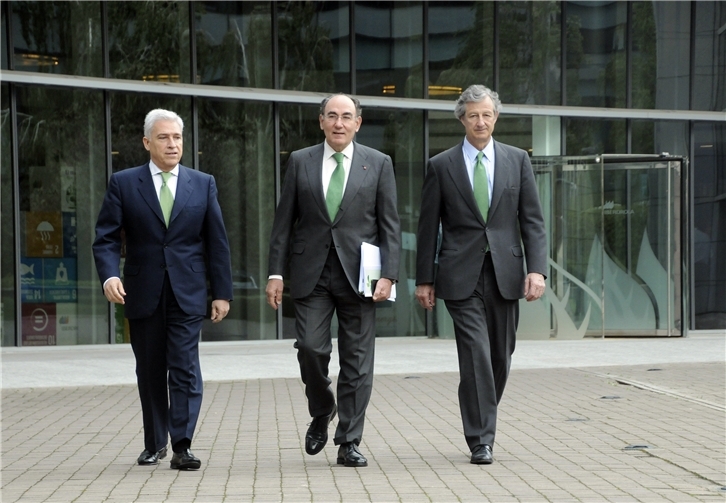
-
24/04/2019The European Round Table (ERT) urges the European Union to face up to the challenges of the 21st century and pledges its collaboration The European Round Table of Industrialists (ERT), a forum bringing together around 55 Chief Executives and Chairmen of major European multinationals, has called on the European Union to take urgent action to deal with the challenges of the 21st century, such as the fight against climate change and the digital transformation. Among the major firms represented at the ERT are four leading Spanish companies, Telefónica, Inditex, Ferrovial and Iberdrola, whose chairman, Ignacio Galán, is also an ERT member. The European Round Table of Industrialists has published this plea, the most significant in its history, in the prelude to the European Parliament elections (Sunday 26 May in Spain), through a new position paper presented today, Strengthening Europe’s Place in the World , which highlights the peace and prosperity that European integration has delivered and calls for a stronger Europe. For the ERT, Europe will not be able to overcome these challenges without coordinated action between governments, civil society and the private sector. So, in this regard, Europe’s largest companies have announced that they are prepared to contribute by committing to five specific pledges: delivering energy transition and tackling climate change; furthering the Digital Transformation; growing investment, especially in R+D; creating value to society; and supporting trade and commerce. In parallel, and in this same vein, the ERT has called on European Union institutions, particularly the new Parliament and Commission, to focus on six policy priorities in the years ahead: strengthening the single market; increasing competitiveness; driving forward digital transformation; addressing the skills gap; ensuring fair and rules-based global trade; and tackling climate change. READ MORE
